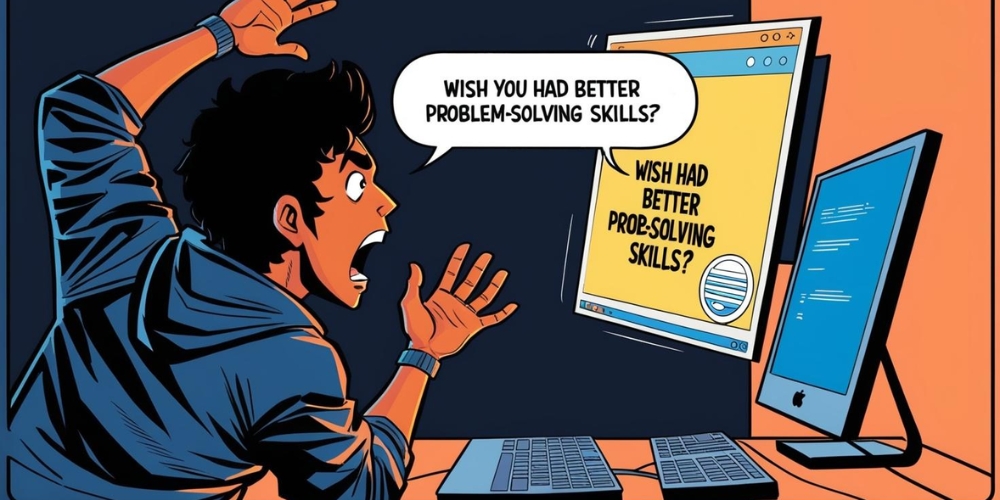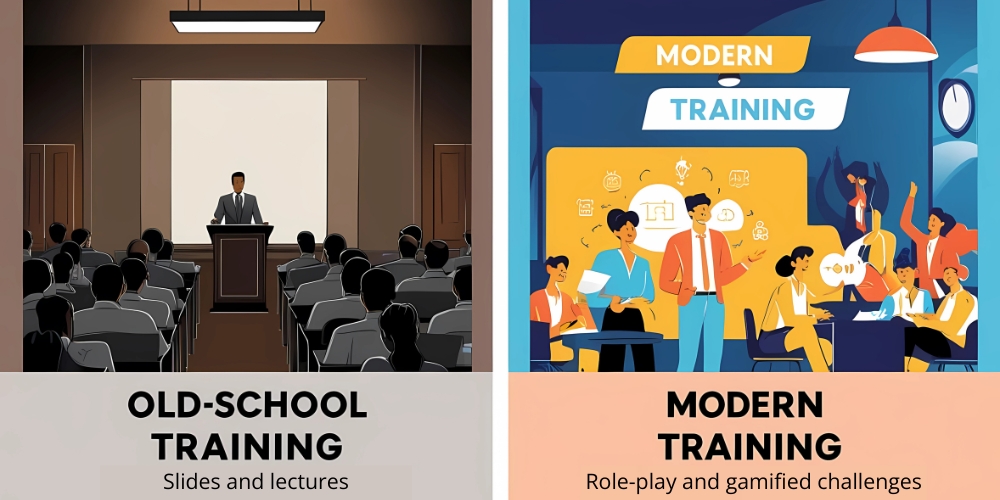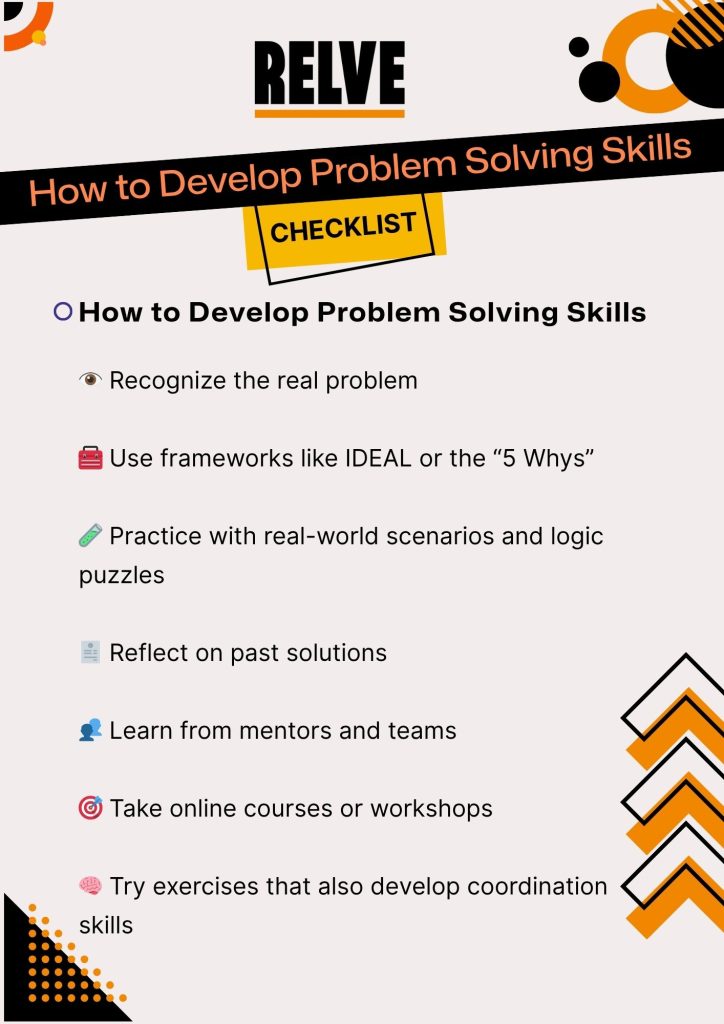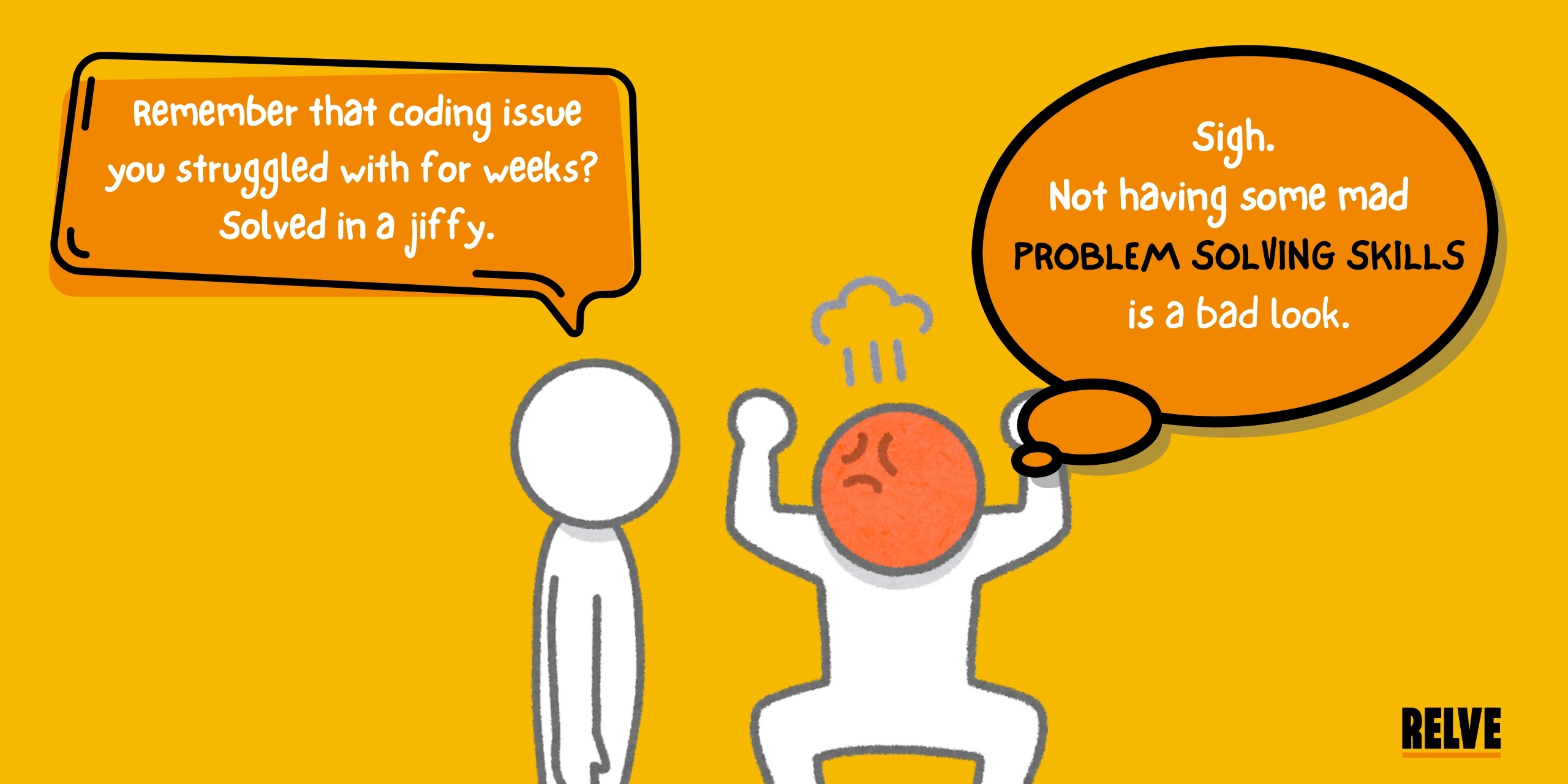Know that feeling you get when a deadline is missed, your printer becomes unresponsive, or your brain freezes during math class? We wish someone could magically swoop in and fix things. In real life, problems don’t just knock. They barge in. That’s why it is important that you take things into your hands and learn how to develop problem-solving skills.
The good news is that anyone can learn problem-solving skills.
In this blog, you’ll learn what problem-solving skills are, why they matter in real life and work, how to build them (even if you think you’re bad at it), and how to train employees to solve issues on their own.

What Are Problem Solving Skills?
Let’s break this down like a LEGO set.
Problem solving skills are the ability to spot a problem, think of ways to fix it, and then actually do something about it.
These skills aren’t just about fixing what’s broken. They include:
- Understanding the issue
- Thinking creatively
- Analyzing data
- Choosing the best solution
- Putting it into action
The World Economic Forum ranked problem solving as one of the top 5 skills for the future workforce. So whether you’re hunting for a job, running a business, or figuring out what’s wrong with your Wi-Fi, you need it.
Why Developing Problem Solving Skills Matters
Let’s say you’re great at your job but panic when things go sideways. That’s a problem. Companies today seek individuals who can take initiative and resolve issues independently, without needing a manager to oversee their work.
McKinsey surveyed that 67% of employers preferred strong problem-solving skills over academic credentials.
As a bonus, improving your problem-solving skills also helps you develop social skills. You learn to listen, communicate, and work with others to solve things. It also builds coordination skills.
These skills are instrumental in unlocking the next level in your career, one smart move at a time.
Solving complex problems is also great for your brain. It reduces anxiety by giving your mind something to focus on. Instead of spiraling, you shift gears and work towards progress.
Core Components of Problem Solving
Good problem solvers usually have a mix of the following:
1. Analytical Thinking
You analyze the problem like Sherlock Holmes. You break big problems into small chunks, working your way through as you solve it.
2. Creativity
Do you find yourself coming up with unconventional, out-of-the-box solutions? That takes creativity and abstract thinking skills.
3. Communication
You need to explain the problem and your plan clearly.
4. Decision-Making
Don’t get stuck comparing pros and cons forever. Pick a path. Move forward.
5. Adaptability
There are times when Plan A doesn’t work out. Good problem solvers formulate backup plans and pivot quickly.
Master these, and you’re well on your way to building problem-solving skills.
How to Develop Problem Solving Skills
Here’s how to develop problem-solving skills step by step, in a realistic way.
🧠 How Strong Are Your Problem Solving Muscles?
Q1: A project deadline moves up by 3 days. What do you do?
Q2: You hit a technical issue no one on your team has solved. You:
Q3: A teammate disagrees with your solution. You:
1. Start With the Basics: Spot the Problem
Don’t jump to solutions too fast. Understand what’s wrong. Ask yourself:
- What exactly is happening?
- Who or what does it affect?
- What’s the impact?
Think of it as putting a name to the enemy before planning your strategy.
2. Use a Framework
Use models like:
- IDEAL: Identify, Define, Explore, Act, Look Back
- 5 Whys: Keep asking “Why?” until you get to the root cause
These are especially helpful when learning how to develop complex problem-solving skills.
3. Do Practice Runs
Play strategy games like chess. Solve riddles. Take on mini-challenges at work. Regular practice improves creative and analytical thinking.
4. Reflect and Learn
After every decision you make, review:
- What worked?
- What didn’t?
- What could you do differently next time?
Reflection turns guesswork into strategy.
5. Apply It Daily
You don’t need a crisis to practice problem solving. Try it in simple tasks:
- Fix a messy calendar
- Resolve a team disagreement
- Cook without a missing ingredient
Practice makes your brain sharper.
6. Learn from Others
Study how others solve problems, mentors, coworkers and even YouTube creators. Ask questions. Copy their mindset. Upgrade your skills.
How to Develop Problem Solving Skills in Employees

Let’s talk business. How can problem solving skills in employees be developed without boring them to tears? Here’s how:
1. Give Real Ownership
Let employees solve real problems, not just follow orders. Give them small projects to manage from start to finish.
2. Create Safe Failure Zones
Encourage smart risks. If people are afraid to fail, they’ll never try new things.
3. Use Scenario-Based Training
Instead of slideshows, use simulations. “What would you do if X happened?” Build role-play exercises around real work challenges.
4. Make Reflection a Habit
Do a debrief after every project or task. What did we learn? What went wrong and what surprised us?
5. Reward Problem Solvers
Recognize those who bring solutions, not just highlight problems. Make it part of your culture.
This is where companies enhance problem-solving skills on a team level.
Common Mistakes to Avoid
Even smart people fall into traps. Watch out for these:
1. Jumping to Solutions Too Fast
Slow down. Diagnose before you treat.
2. Groupthink
If everyone agrees too fast, there’s probably a better idea out there. Play devil’s advocate.
3. Ignoring Data
Use facts, not just hunches. Biases love to sneak in when you skip the data.
4. Fear of Being Wrong
It’s okay to fail. Just don’t fail the same way twice.
5. Over-Analyzing
Paralysis by analysis is real. At some point, you have to make a move.
If you avoid these mistakes, you’re already ahead of others.
Conclusion
Problems are going to show up whether you like it or not. The trick is being ready for them and even enjoying the process of solving them. Learning how to develop problem solving skills doesn’t take fancy degrees or years of training. It takes curiosity, a framework, and a bit of trial and error.
Whether you’re at home fixing a broken faucet or leading a team through a product crisis, problem-solving gives you the edge. It helps you develop coordination skills, builds confidence, and opens up leadership doors.

